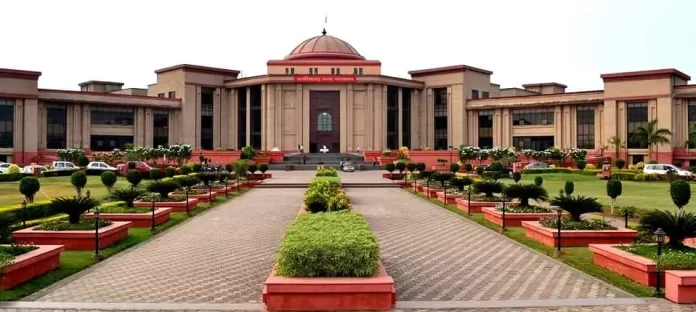The Chhattisgarh High Court has dismissed a public interest litigation that challenged the actions of several Gram Sabhas in Kanker district which had installed signboards restricting the entry of Christian pastors and individuals who had converted to Christianity. The Court held that such actions, when viewed in context, were not unconstitutional and did not amount to a violation of fundamental rights as claimed by the petitioner.
The petition was filed by Digbal Tandi, a resident of the region, who contended that the hoardings displayed at the entrances of certain villages effectively barred Christian pastors and converts from entering those areas. According to the petitioner, the boards carried messages such as “Hamari Parampara, Hamari Virasat” (Our Tradition, Our Heritage) and thus symbolized exclusion based on religious identity, contrary to Articles 14, 19, and 25 of the Constitution of India. The petitioner argued that this amounted to discrimination and an infringement of the right to freely practise and propagate religion.
The matter was heard by a division bench consisting of Chief Justice Ramesh Sinha and Justice Bibhu Datta Guru, which observed that the villages concerned fall within the Scheduled Areas governed by the provisions of the Panchayat (Extension to Scheduled Areas) Act, 1996 (PESA). Under this law, Gram Sabhas possess significant autonomy to safeguard the traditions, culture, and resources of tribal communities. The Court held that the boards in question appeared to have been installed as a preventive and protective measure by the village assemblies, intended to preserve the cultural identity and social fabric of the indigenous population.
The bench emphasized that while Article 25 of the Constitution guarantees freedom of religion including the right to profess, practise, and propagate it does not sanction conversion through coercion, inducement, or fraudulent means. Referring to the Supreme Court’s landmark decision in Rev. Stanislaus v. State of Madhya Pradesh (1977), the judges reiterated that the right to propagate religion does not include a right to convert another person by force or allurement.
In dismissing the plea, the High Court also noted that the petitioner had not availed of statutory remedies available under PESA and that no direct evidence had been presented to show that the hoardings were used to enforce unlawful restrictions or to incite violence against any group. The bench held that there was no sufficient ground to interfere with the Gram Sabha’s decisions, which were within their statutory domain of protecting local culture and governance structures.
The Court concluded that the signboards in question did not demonstrate any intent to unlawfully curtail the religious freedoms of individuals but rather reflected a collective assertion of tribal cultural preservation. Consequently, the petition was dismissed as being devoid of merit.
The ruling underscores the ongoing tension between the right to freedom of religion and the constitutional mandate to protect the traditions and cultural integrity of tribal communities living in Scheduled Areas. It highlights how the judiciary continues to balance competing constitutional interests ensuring that the exercise of religious freedom does not erode the cultural autonomy of indigenous populations protected under the PESA framework.


